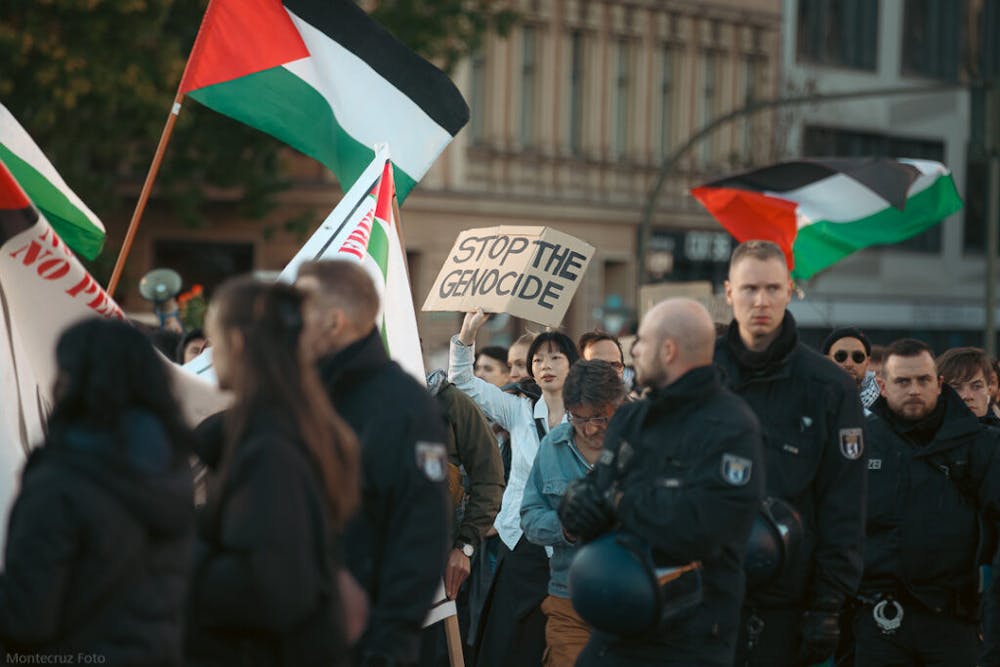Last week, Yusra Aden wrote an excellent article on the ongoing violence in the Gaza Strip. If you have not read it, I encourage you to do so. Without repeating too much of what Aden wrote, I have some thoughts to share.
This conflict has highlighted a flaw in the journalistic profession. That flaw is an overemphasis on neutrality that often limits the media’s ability to accurately report the truth.
In the violence of the last few weeks, we have witnessed the deaths of 24 journalists according to the Committee to Protect Journalists. Israel and Hamas have both shown little reverence for the sanctity of journalism and the lives of journalists, but Israeli airstrikes have been the cause of most of those deaths.
When reporters go into conflict zones, they assume some level of risk. Being in a war zone is dangerous. However, they should not have to risk their lives to cover what is happening on the ground. Combatants have a responsibility to ensure that their actions minimize civilian casualties, and that includes journalists.
For the last 75 years, the Israeli government has waged a war against the Palestinian people that amounts to genocide. The 1948 Nakba forcibly relocated the majority of Arab Palestinians from their homes and land, and the decades since have been marked by endless cruelties inflicted on the Palestinians by the Israeli state.
None of that justifies Hamas’ actions, though. The indiscriminate killing of civilians and taking of hostages are acts that are always wrong, regardless of the perpetrators. War crimes are war crimes, no matter the war criminal.
But Israel is not innocent. Human Rights Watch has reported on the Israeli Defense Force’s use of white phosphorus in densely populated areas. White phosphorus has legitimate military uses, but its use against civilians is prohibited by international law.
Israel has also engaged in collective punishment, according to UN experts, against the civilians of Gaza. The government has tied humanitarian relief to negotiations with Hamas, punishing civilians on behalf of Hamas.
In the coverage of the violence, major news organizations have been cautious to criticize Israel or bring attention to its human rights abuses. Part of this reluctance is due to the conflation of the Israeli state and the Jewish people which dominates any conversation on the subject.
Decades of Israeli propaganda have cemented the idea that any criticism of Israel is antisemitic, arguing that the Israeli state represents Jews as a group. But that mixing of terms is problematic because it provides the Israeli government an easy shield against any criticism, allowing them to perpetrate atrocities.
We do not do that with other countries. Most people can recognize that a government is not interchangeable with its citizens. The ultra-conservative government of Israel is not synonymous with the Israeli population, nor Jewish communities internationally. Criticism of Israeli policy or their leaders is not intrinsically antisemitic, just as it would not be anti-American to criticize the American government, or Sinophobic to criticize the Chinese government.
In the same vein, it is dishonest to conflate the terrorists in Hamas to the Palestinian populations of Gaza or the West Bank. There are over 2 million people in Gaza, and less than 20,000 are suspected of being Hamas militants. A government is not synonymous with its citizens, just as a terrorist group is not synonymous with the people they use as human shields.
Unfortunately, the Israeli government has shown little effort in distinguishing those two groups.
Equating any criticism with the Israeli government silences those who speak out against the violence it perpetuates. If we want the media to accurately report the truth of what is going on in Gaza, we need to make sure they can do so without being labeled as antisemites.


The Slate welcomes thoughtful discussion on all of our stories, but please keep comments civil and on-topic. Read our full guidelines here.